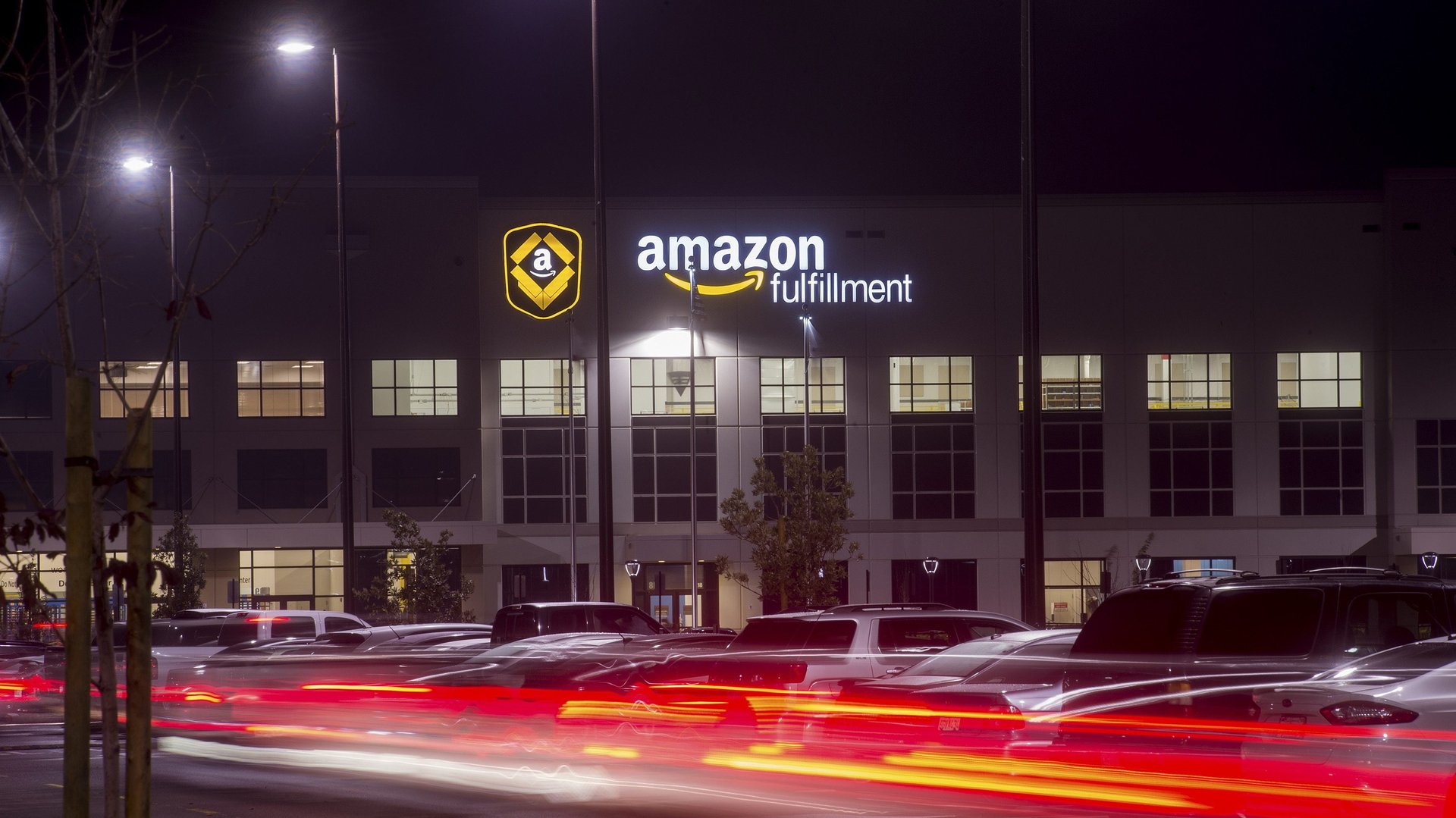Hating Amazon is one thing the hard left and hard right agree on
For a brief moment on Sept. 4, Amazon was worth $1 trillion, the second US company ever to hit that mark (Apple was first). Earlier this summer, Amazon chief executive Jeff Bezos secured the title of world’s richest man, with a personal fortune that now stands at $167 billion, or 3.5 times the market cap of Target.


For a brief moment on Sept. 4, Amazon was worth $1 trillion, the second US company ever to hit that mark (Apple was first). Earlier this summer, Amazon chief executive Jeff Bezos secured the title of world’s richest man, with a personal fortune that now stands at $167 billion, or 3.5 times the market cap of Target.
Amazon and Bezos for a long time managed to avoid political attention, but wealth that great will put a target on anyone’s back. After attacking the company for low pay and poor labor practices, US senator Bernie Sanders on Sept. 5 introduced a bill—the unsubtly named “Stop Bad Employers by Zeroing Out Subsidies Act” or Stop BEZOS Act—that would tax employers whose workers depend on government assistance programs, such as SNAP and rental subsidies.
Sanders has found support in an odd corner. “Jeff Bezos isn’t paying his workers enough to eat, so you made up the difference with your tax dollars,” said Tucker Carlson, a conservative commenter for Fox News, in a broadcast on Aug. 30. He went on to criticize Walmart and Uber for underpaying workers and forcing them to fall back on the federal safety net. “This is an indefensible scam,” Carlson tweeted. “Why is only Bernie talking about it?” In Amazon, the hard left and hard right have found common ground.
Amazon has already weathered insults from Donald Trump. During his campaign, Trump called Amazon a “tax shelter” and “antitrust problem” and derided Bezos and the Washington Post, which Bezos owns separately from Amazon. “If I become president, oh, do they have problems, they’re going to have such problems,” Trump said in February 2016. He has continued to badger Bezos and make antitrust threats against Amazon since taking office, recently describing Amazon, Facebook, and Google as a “very antitrust situation.” Trump has even pushed the postal service to raise its rates on Amazon.
The attacks from Sanders have struck a nerve that Trump’s never managed to hit. On Aug. 29, Amazon took the rare step of responding to the Vermont senator in a lengthy blog post, calling his accusations “inaccurate and misleading.” Amazon touted the jobs it creates (130,000 in the last year), wages it pays (on average, over $15 an hour for full timers, if you include cash, stock, and incentive bonuses), benefits it offers (health, disability, retirement savings plans, and stock), and the “climate controlled, safe workplace” it provides.
Amazon has also encouraged its employees to reach out to Sanders and tell him about their “actual”—read, positive—experiences working for the company. In the meantime, the company has deployed a small number of Twitter “ambassadors”—people who work in its warehouses—to push back on public criticism and tweet about why they like working for Amazon.
The Stop BEZOS bill, despite its acrobatics of abbreviation, seems unlikely to fly. Sanders’ proposal has been roundly critiqued as likely to hurt lower-income workers, including by the progressive Center on Budget and Policy Priorities (CBPP) and Jared Bernstein, former chief economist for Joe Biden and a senior fellow at CBPP. The bill, the CBPP writes, would effectively encourage employers to hire fewer workers “who are in low-income families and, thus, more likely to qualify for Medicaid or nutrition or housing assistance.” This would disproportionately affect single parents, women, people of color, and workers with disabilities or significant health issues—in short, America’s most vulnerable populations.
And yet the political pressure on Amazon is likely to intensify. The company’s lofty valuation plus the wealth of its chief executive are sufficient to make it a target. Add that to the drumbeat of worker complaints, union efforts from employees at Whole Foods, fatigue with Amazon’s game-show-like hunt for a new headquarters, persistent rumblings of antitrust, and Congress souring on big tech, and it’s clear that Amazon should be wary of Washington.
Amazon, of course, knows this, even if it wouldn’t admit it. That might explain why three of the 20 cities on Amazon’s shortlist for HQ2 were in the DC metro area; why Bezos is spending $12 million to renovate his $23 million DC mansion; and why Bezos earlier this week made his biggest-ever campaign contribution, donating $10 million to a PAC that supports military veterans running for Congress on both sides of the aisle. It behooves the company to keep a close eye on politics.
For most of its history, Amazon’s chief concern was keeping customers happy and profit-hungry investors at bay. But these days, the money is pouring in. Alexa is a hit, the stock is up more than 60% since January, and Amazon is crushing competitors with mere announcements. It’s become difficult to even define what Amazon is as a company. Amazon was never perfect. But only in 2018 has it climbed so high that it’s now a top target for critics on both the right and the left to bring down.